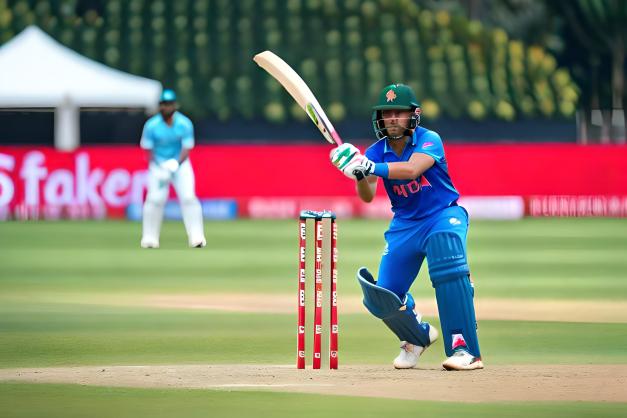Cricket fans around the world eagerly await the Cricket ICC World Cup, a tournament filled with spectacular moments and unforgettable matches. While cricket enthusiasts may be well-versed in the tournament’s history, there are many intriguing facts that often escape the spotlight. In this article, we dive into the rich history of the Cricket World Cup that every fan should know.
The Rich History of Cricket ICC World Cup
Cricket, often referred to as a gentleman’s game, has a glorious history that culminates in the grandeur of the Cricket World Cup. While cricket enthusiasts worldwide passionately follow the event, there are some intriguing, lesser-known facts that add a unique flavor to this prestigious tournament.
Let’s discover the fascinating, lesser-known side of this cricket extravaganza.
1. Inception of the Cricket ICC World Cup
- The first-ever Cricket World Cup took place in 1975. It was hosted by England and consisted of just eight teams.
- The West Indies emerged as the champions, laying the foundation for their cricketing dominance in the following decades.
2. Unique Trophy
The trophy awarded to the World Cup winner is one of a kind. Designed to resemble a globe made of silver and gold, it’s a symbol of cricket’s global reach.
3. Packer’s Influence – Colored clothing
- In 1977, media mogul Kerry Packer introduced the revolutionary concept of colored clothing, floodlights, and white cricket balls during the World Series Cricket.
- These innovations eventually found their way into the Cricket World Cup, giving the game a fresh and vibrant look.
4. No ICC World Cup in 1979
- Interestingly, the Cricket World Cup wasn’t scheduled in 1979 due to a lack of sponsors.
- The 1979 Cricket World Cup, officially known as the Prudential Cup ’79, marked the second instalment of the Cricket World Cup. Under the auspices of the International Cricket Conference, this prestigious tournament took place in England from the 9th to the 23rd of June in 1979
5. India’s Surprise
- In 1983, India stunned the cricketing world by clinching their first-ever ICC World Cup title.
- The iconic image of Kapil Dev holding the trophy at Lord’s is etched in cricketing history.
6. Rain Rule Dilemma and 1992 World Cup Semi-Final
- The 1992 ICC World Cup, hosted by Australia and New Zealand, introduced the concept of floodlight matches.
- In 1992, rain played spoilsport. The 1992 World Cup semi-final between England and South Africa ended in a dramatic tie, with South Africa narrowly missing out on a place in the final due to an inferior net run rate. South Africa was given a non-achievable target of 32 runs on just one ball after rain stopped. The match ended in a dramatic tie, and it led to the introduction of the Duckworth-Lewis method to adjust targets in rain-affected games.
7. South Africa’s Return – Apartheid Impact
- Due to South Africa’s apartheid policies, the team was banned from international cricket for over two decades.
- They made a triumphant return to the World Cup stage in 1992, symbolizing the end of apartheid and a new beginning for cricket in the Rainbow Nation.
8. ICC World Cup Hattrick
- Australian cricketer Glenn McGrath boasts a remarkable record of taking a wicket with his first ball in three consecutive World Cups (1999, 2003, and 2007).
9. India’s Twin Victories
- India is the only team to have won the ICC World Cup both as a host (1983) and on foreign soil (2011).
10. Proteas’ Heartbreak
- South Africa is often associated with heartbreak in the World Cup. In the 1999 semi-final against Australia, they required one run off three balls but lost two wickets, leading to a dramatic tie.
11. Associate Triumphs – Upsets in World Cup history
- In 1979, Sri Lanka, not yet a full member, defeated India and Pakistan.
- In 1979, the Canadian team shocked everyone by defeating Pakistan. This match is still remembered as one of the biggest upsets in World Cup history.
- In 2003, Kenya’s remarkable journey led them to the semi-finals, showcasing the potential of associate nations.
12. Sachin Tendulkar’s Youngest Centurion
- Sachin Tendulkar became the youngest centurion in World Cup history when he scored a brilliant century against Australia in 1996 at the age of 23.
13. England’s Redemption
- After 44 years since the inaugural World Cup, England finally secured their maiden title in 2019, winning a thrilling final against New Zealand in a super over.
14. The Tied Final
- The 2019 World Cup final between England and New Zealand was an absolute thriller. The match ended in a rare tie, and England was declared the winner based on the boundary count.
These important facts add a layer of fascination to the Cricket ICC World Cup’s rich history. As cricket continues to evolve, new stories and moments are created in this prestigious tournament, keeping fans on the edge of their seats. So, the next time you settle in to watch a World Cup match, remember these captivating nuggets of cricket history.
Read Also: ICC World Cup : Unveiling the Lesser-Known ODI Cricket Facts



